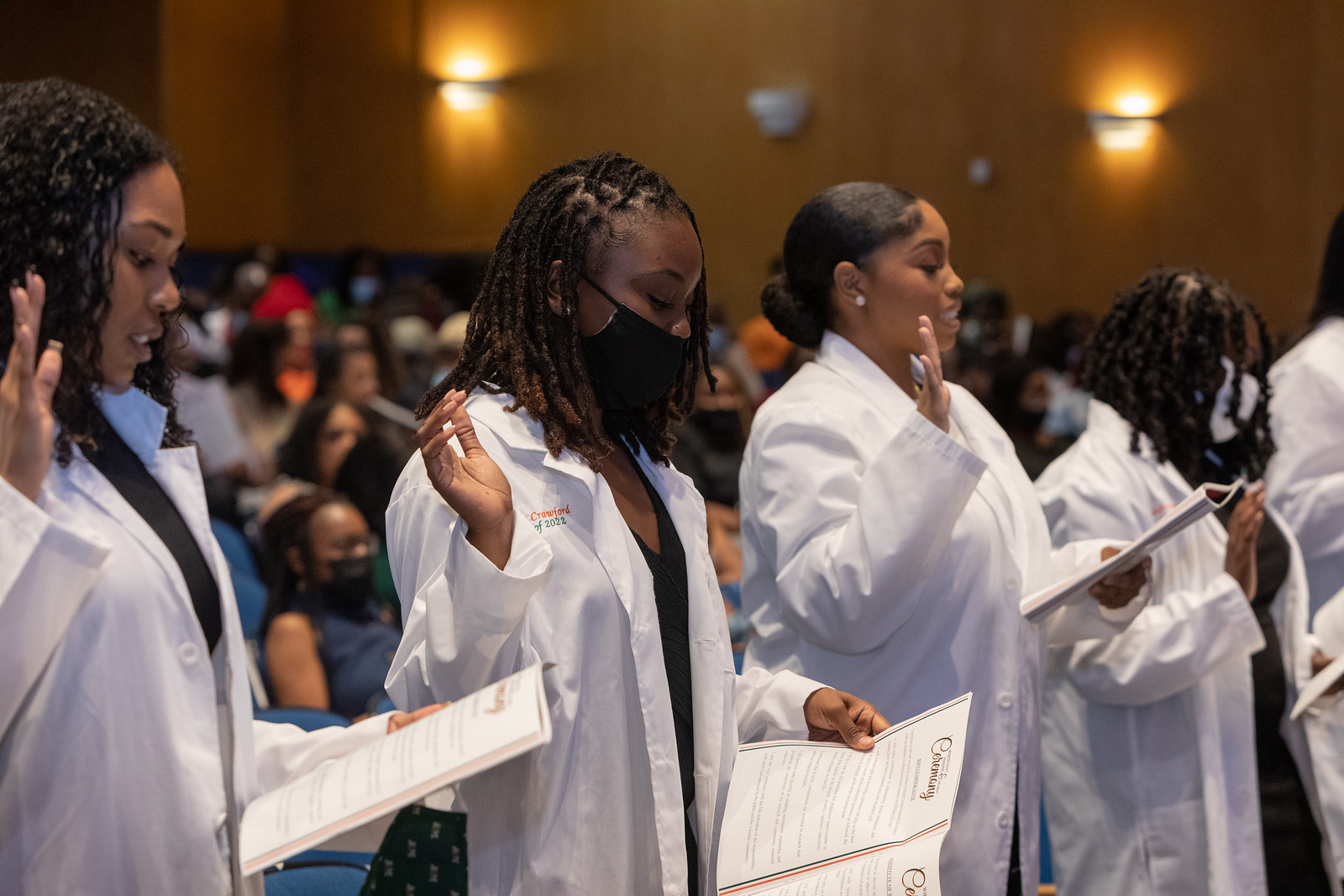FAMU Class of 2022 Doctor of Pharmacy Students Continue to Outperform State and National NAPLEX Examination Averages

FAMU College of Pharmacy and Pharmaceutical Sciences, Institute of Public Health (CoPPS, IPH) Doctor of Pharmacy students have again exceeded state and national first-attempt pass rates on the NAPLEX® licensure exam, making the program’s pass rate status #1 amongst HBCU pharmacy schools and among the top three in the state of Florida pharmacy schools.
In 2022, the students took the NAPLEX® exam for the first time between June 1st and December 31st.
On the NAPLEX®, the Doctor of Pharmacy class of 2022 earned an 85 percent first-time pass rate. While this pass rate is a decrease of approximately four percentage points over the 2021 results, these NAPLEX® results still surpassed the current state average of 83 percent and the national average of 80 percent for first-time test takers.
The NAPLEX® measures a candidate’s knowledge entering the practice of pharmacy. The National Association of Boards of Pharmacy develops the exam. It is one component used by the state boards of pharmacy for assessing a candidate’s ability to practice pharmacy.
“In the past six years, the College has relentlessly focused on increasing first-time candidates’ licensure pass rates. For the last two years, we have outperformed state and national averages on this exam. We are pleased with the Class of 2022 continuing the tradition of NAPLEX excellence,” said Jocelyn D. Spates, PharmD, CoPPS, IPH Associate Dean of Clinical Affairs.
The University’s Licensure Task Force, chaired by Interim Provost Allyson Watson, Ph.D., performs in-depth evaluations of the program and generates recommendations to improve performance on the licensure exam for first-time takers. The Licensure Task Force exemplifies the University’s strong interest and close support in making steady progress toward attaining an excellent licensure result.
“This licensure result attests to the adequacy of the Doctor of Pharmacy curriculum in preparing top-performing practitioners. It also reveals the consistent and persistent efforts of skilled professional staff, practitioner faculty, including those who are board-certified [in pharmacotherapy, geriatrics, ambulatory care, and psychiatry], and pharmaceutical scientists who pour their research skills and knowledge into teaching,” said CoPPS, IPH Dean Johnnie L. Early II, Ph.D., RPh. “Our degree programs position the College as comprehensive, complex, and a graduate professional unit.”



